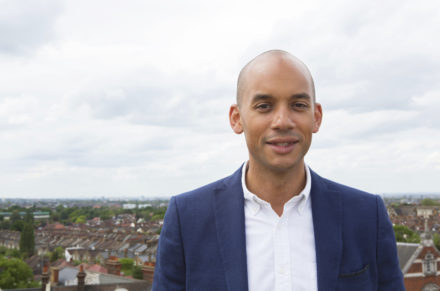

Chuka Umunna’s essay The Labour Alternative is the most comprehensive account of Labour’s purpose since Jon Cruddas’ 2013 speech on earning and belonging. Building on Jon’s idea that a Labour politics needs to start with people and place, Chuka argues that the Labour Party can renew its historic purpose of defending the labour interest by offering a “national popular politics around work, family, the places people belong to, and a pride in country”.
Key to this programmatic statement is the idea of reciprocity – relations of give-and-take or honouring contribution. As an organising principle, reciprocity can guide Labour in transforming the market away from rampant capitalism towards greater economic justice. In society, more reciprocal relations can bring about a shift from individualism towards more social solidarity. And politically, reciprocity moves Labour from the minority politics of vested interests and group identity to a majority politics based on a balance of interests and shared identity.
Reciprocity is vital for the renewal of Britain, which has been Labour’s historic achievement under the leadership of Attlee, Wilson and Blair. A core strength of Chuka’s vision is that it recognises the limits and failures of past Labour governments. His alternative charts a path beyond New Labour modernisation precisely because the Blair and Brown governments failed to inject reciprocity into politics and the economy: “New Labour politics became increasingly managerial and transactional. Too hands off with the market and too hands on with the state became the dominant approach to governing”.
Under Jeremy Corbyn, Labour has embraced the opposite extreme by combining an attack on the market with a blind faith in nationalisation and central state regulation. What these differences conceal from view is a fundamental agreement between New Labour and the hard left around job-destroying technology, a cosmopolitan disdain for patriotism, and support for mass immigration, all of which were rejected in the EU referendum.
If Theresa May is right about one thing, it is that Brexit highlights a growing popular demand for a new economic and social settlement. Creating a more social market and a more responsive state will be the test of her government. A purely buccaneering approach to Europe and the agenda of a Global Britain based on ever-more global free trade is likely to ensure a backsliding in a neo-liberal direction.
This will hurt the very workers she purports to protect with her promise on the steps of Downing Street of building a “country that works not for a privileged few, but for every one of us”. Moreover, the failure to build a strong model at home will weaken Britain’s ability to shape a new global economy that benefits those who are experiencing economic and cultural insecurity.
Therefore it is right, as Chuka indicates, that the Labour Party needs to offer a vision of national renewal around people and their needs and interests, the importance of place from neighbourhood via city and county to pride in country, as well as principles of fair play and decency. These are the basis for a new popular politics and a transformative policy platform.
A focus on reconnecting with the working class is vital but if the party is to defend the labour interest, then it must speak to much larger sections of the population who are currently ignored. This includes the over-55s, the self-employed and the middles classes who struggle to make ends meet. The task for Labour is to build a new cross-class and cross-cultural coalition beyond the divide between pro-Brexit and pro-Remain, which requires a politics that can mobilise not just the trade unions, party activists and the working class but also a majority who don’t trust the Tories but think Labour is not on their side.
To help advance this project, Labour has to organise. That means developing the ideas and building a majority within the PLP around a Labour politics of earning and belonging – work, family, place and pride in country. For example, mayoral elections in May should be followed by work on a devolved settlement for all villages, town and cities across England, Wales and Scotland. As power is still concentrated in London, Edinburgh, Cardiff and a few metropolitan areas, Labour can be the champion of local self-government across the UK – with a new institutional ecology that can re-balance the economy and foster greater social cohesion.
The other key element is to transform the party in the image of the country. Labour needs to find many more local leaders who represent their communities and can be future council leaders, mayors or MPs. That requires a national strategy of community-organising, leadership development and the recruitment of new members who can counterbalance the militant activists around Momentum. By stepping up, leading Labour politicians at all levels can help to persuade people that Labour will never be synonymous with the hard left.
After the terrible result in the Copeland by-election, Labour faces the prospect of yet another disastrous defeat in the next general election. More so than in 2010 and 2015, the party is set to lose everywhere to everyone: to the Lib Dems in London, to UKIP in Wales and possibly in the Midlands, to the SNP in Scotland and above all to a resurgent Conservative Party across England.
Even if the Tories fail to build a new political and economic settlement, Labour led by Corbyn is neither an effective opposition nor a government-in-waiting. By contrast, Chuka offers a vision of a Labour politics that can regain people’s trust and win a parliamentary majority.
It does so by taking the fight to the Tories in the new centre-ground of British politics where most people are – a desire for fiscal discipline and economic justice; for further devolution of power to people and a more active role of government; for more global trade and a strategy for national renewal; for greater patriotism and a stronger international outlook.
Dr Adrian Pabst is reader in politics at the University of Kent and, along with John Milbank, wrote The Politics of Virtue: Post-liberalism and the Human Future (Rowman & Littlefield, 2016).




More from LabourList
SPONSORED: ‘Industrial hemp and the challenge of turning Labour’s priorities into practice’
‘A day is a long time in politics, so we need ‘action this day’’
Strong support for child social media ban among Labour members, poll reveals